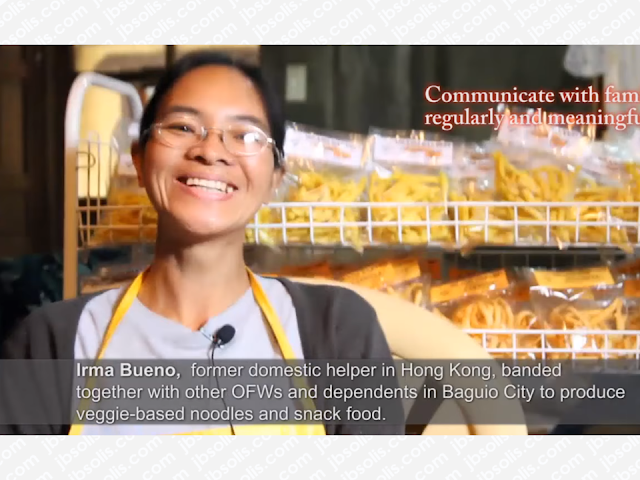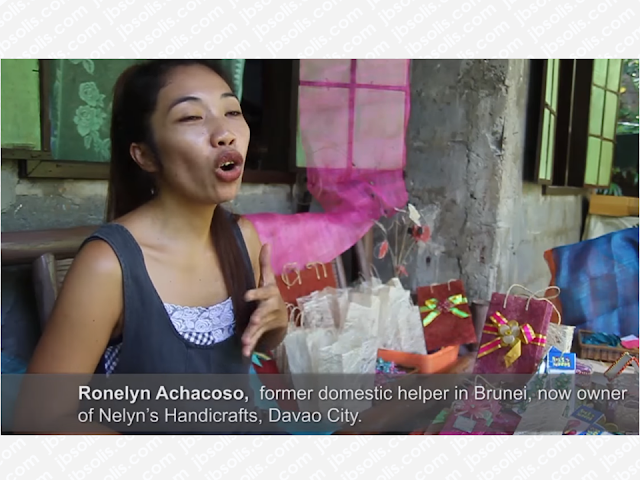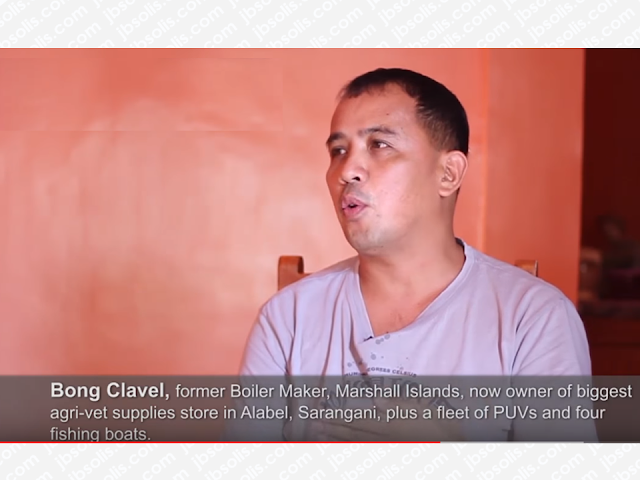MANILA, Philippines — MALIBAN sa selebrasyon ng Pasko at Bagong Taon, isa sa pinaka-masayang araw sa buwan ng Disyembre ay ang pagtanggap ng 13th month pay. Isa ito sa mga pinaka-hihintay ng mga empleyadong nagtatrabaho sa gobyerno man o sa pribadong institution.
Alam nating lahat na hindi dapat ginagastos sa mga walang kwentang bagay ang 13th Month Pay dahil minsan lamang ito dumarating sa buhay ng isang empleyado.
Kaya bago mo ito ibili ng mamahaling sapatos o bagong cellphone, narito ang ilan sa mga importante at makabuluhang bagay na maaari mong ikonsidera na paggastusan ng iyong 13th month pay.
Ads
1. Pambayad utang
Hindi maikakaila na nakakasira ng mood ang mga naniningil ng utang lalo na kung walang pambayad. Huwag mong hintayin na sirain din nito ang masayang selebrasyon mo ng Pasko at Bagong Taon. Isa sa pinaka-magandang pagsisimula din ng Bagong Taon ang kawalan ng utang.
Kung may pinagkaka-utangan, gawing prioridad ang pagbabayad ng utang sa pamamagitan ng 13th month pay mong matatanggap at simulan ang bagong taon na walang utang.
Kung may mga hindi nabayarang credit card bills, bayaran muna ito bago gumastos sa ibang bagay. Maaari ding gamitin ang 13th month pay bilang advance payment sa binabayarang sasakyan o bahay.
Gawin ito sa pamamagitan ng paglista sa mga utang at kung alin sa mga ito ang dapat unang bayaran. Unahing bayaran ang pinaka-malaki at may pinaka-maas na interes na utang at isunod ang mga maliliit at hindi naman kailangang bayaran agad.
Hindi maikakaila na napakaganda sa pakiramdam na hindi tayo nai-istress ukol sa pera lalo na sa mga utang na may malaking interes, maliban pa sa mga naniningil.
Ang peace of mind ay isa sa piaka-magandang regalo na maaari mong ibigay sa iyong sarili ngayong holiday season.
Ads
2. Investment
Kung wala ka namang utang na dapat bayaran at nag-iisip ng makabuluhang bagay para sa iyong 13th month pay, maaari mong i-konsidera ang pag-invest.
Magandang source ng passive income ang investment gaya ng stocks at mutual funds sa kondisyon na popondohan mo ito ng regular.
Sa investment, maraming maaaring pagpilian:
- Mutual funds at UITFs – Maaaring magsimula sa mutual funds o Unit Investment Trust Fund, lalo na kung baguhan ka sa aspetong ito. Maaaring magsimula sa halagang P1,000 para minimal lamang ang risk ng iyong investment.
- Stock investments — Kung gusto mo namang mas challenging, maaaring mong subukan ang stocks. Itinuturing itong high-risk, high-reward type na investment, kaya dapat may alam ka sa stock market bago mo ito pasukin.
- Pag-IBIG/SSS investments — Maaari ka ring mag-invest sa mga government-regulated funds upang masigurong tutubo ang pera mo. Sa halagang P500, maaari kanang makapag-simula ng investment dito.
- Real estate investments — Bakit hindi mo gamitin ang iyong 13th month pay sa pag-invest para sa dream home mo? Maaaring kulang ang iyong Christmas bonus para bumili ng bahay o lupa, pero maaari mong gamitin ito bilang pambayad ng downpayment sa isang home lot o rent-to-own condominium. Kahit wala kang plano sa ngayon na tumira sa mga ito, maaari mo naman itong paupahan sa mga tenants o business owners kung saan maaari kapang kumita mula sa renta.
Sponsored Links
3. Magbukas ng savings account at emergency fund
Isa sa pinaka-importanteng bagay na dapat mayroon ang isang tao ay ang savings at emergency fund upang may magamit sa panahon ng pangangailangan.
Kung wala ka pang naitatabi, maaaring gamitin mo ang iyong 13th month pay upang magbukas ng savings account at emergency fund sa banko.
Alam natin na hindi madali ang pagkakaroon ng emergency fund dahil sa iba't-ibang financial obligation na mayroon tayo. Ngunit importanteng mayroon tayong savings o emergency fund bilang "safety net" o madudukot sa mga panahon ng labis na pangangailangan.
Ang "rule of thumb" sa pag-iipon ng emergency fund ay hindi dapat bababa ang halaga nito sa kabuuan halaga ng iyong tatlong buwanang sahod.
Kung sumasahod ka ng P25,000 kada buwan, dapat nasa P75,000 ang emergency fund mo. Maaari kang mag-simula sa mababang halaga hanggang sa makamit mo ang iyong target at palaguin.
4. Planuhin na ang pag-retiro
Sa edad na 25-anyos, maaaring masabi mo sa sarili na napaka-aga pa upang pagplanuhan ang pag-retiro, ngunit hindi mo rin dapat hintayin na magiging 50-anyos ka bago mo ito pag-isipan. Itinuturing bilang "most rewarding gifts" para sa sarili ang maagang pagplano ng pag-retiro. Hindi lamang ito para sa sarili mo ngunit maging sa iyong pamilya.
Ayon sa isang pag-aaral, karamihan sa mga Filipinos ay hindi naghahanda para sa kanilang retirement.
Ayon sa pag-aaral ng Global Aging Institute and Pru Life UK noong 2015, siyam sa 10 Filipino workers na nagreretiro ay nahihirapan sa buhay dahil sa ubos na savings, pagkakasakit at kawalan ng mag-aalaga o nagiging pabigat na sa mga anak.
Ngunit maaari mo itong maiwasan kung maaga pa lamang ay napaghahandaan mo na ang iyong pag-retiro sa pamamagitan ng paggamit ng iyong 13th month pay bilang paunang ipon para sa iyong retirement fund at gawing habit ang paglalagay nito ng ilang porsyento mula sa iyong buwanang kita.
5. Kumuha ng insurance
Isa sa pinaka-importanteng investment ang insurance na binabalewala ng maraming Filipino dahil hindi naman ito agad kailangan. Ngunit hindi natin alam kung kailan tatama ang mga hindi inaasahang pangyayari sa buhay natin.
Pasalamat tayo sa 13th month pay na maaring gamitin sa pag-apply sa iba't-ibang uri ng insurance.
- Life insurance — Maaari mong ipa-insure ang sarili mo o ang mga mahal mo sa buhay. Kayunin nito na may magamit na pera ang mga maiiwang mahal sa buhay o mga anak sakaling ikaw ay sumakabilang-buhay. Maituturing na nakakasakit ang ganitong uri ng insurance ngunit importante ito para sa mga mahal mo sa buhay lalo na kung ikaw ang kumakayod o bread winner ng pamilya.
- Car insurance — Kung may sasakyan, kailangan din nito ng insurance upang may sasagot sa mga gastusin sakaling maaksidente.
- Home insurance — Magbibigay naman ito ng financial protection laban sa pagkasira ng iyong bahay dahil sa natural disasters o human error.
- Health insurance — Kahit may Philhealth na, maaari ka pa ring mag-apply ng health insurance upang masagot nito ang mga bayarin na hindi na sakop ng Philhealth.
6. Magsimula ng negosyo
Maaari mong gamitin ang iyong 13th month pay sa pagsisimula ng sariling maliit na negosyo. Posibleng may naisip kanang negosyo noon ngunit wala kang kapital. Dahil may 13th month pay kana, panahon na upang maisakaturaoan mo ito.
Maraming mga negosyo na nangangailangan ng maliit na kapital kagaya na lamang ng mga sumusunod:
Piso Wi-Fi vending machine – Mas mura ito kung ikukumpara sa computer shop at mas madali din na i-manage. Kailangan lamang mag-invest sa magandang internet connection para makapag-simula.
Cake and pastry business — Kung may skills at talent ka sa paggawa ng mga cakes at pastries, maaaring simulan mo ito sa pamamagitan ng iyong 13th month pay lalo na kung may mga gamit kanang nabili.
Bills payment business — Ito ang isa sa mga pinaka-gusto ng mga Filipinos dahil, sino ba naman ang may gusto sa mahabang pila? Maaari kang magsimula ng sariling payment centers sa halagang P5,000 sa pamamagitan ng pag-invest sa point-of-sale device.
7. Gastusin ang 13th month pay!
Napakasarap gumastos ng pera, ngunit isiping mabuti kung mahalaga ba o kailangan ba talaga ang isang bagay na bibilhin para hindi ito pagsisisihan sa huli.
Maaari mong gastusin ang iyong 13th month pay sa pagpapaganda sa iyong bahay, para sa bakasyon ng buong pamilya o sa pagbili ng gamit na matagal mo nang inaasam-asam.
Perang pinag-hirapan ang 13th month pay kaya bago mo ito gamitin, pag-isipang mabuti ang mga desisyon at iwasan ang padalos-dalos na desisyon sa paggastos.
©2020 THOUGHTSKOTO






















